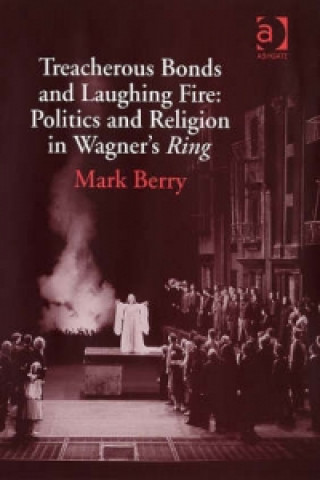
Kód: 04680047
Treacherous Bonds and Laughing Fire: Politics and Religion in Wagner's Ring
Autor Mark Berry
Mark Berry explores the political and religious ideas expounded in Wagner's 'Ring' through close attention to the text and drama, the multifarious intellectual influences upon the composer during the work's lengthy gestation and c ... celý popis
- Jazyk:
 Angličtina
Angličtina - Vazba: Pevná
- Počet stran: 304
Nakladatelství: Taylor & Francis Ltd, 2005
- Více informací o knize

Mohlo by se vám také líbit
-

Music of Hugh Wood
5255 Kč -
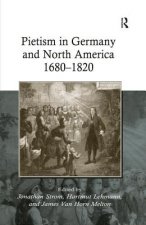
Pietism in Germany and North America 1680-1820
5754 Kč -
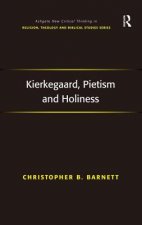
Kierkegaard, Pietism and Holiness
5255 Kč -
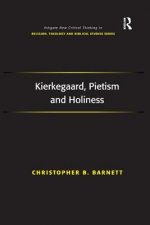
Kierkegaard, Pietism and Holiness
1959 Kč -
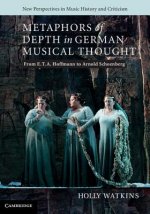
Metaphors of Depth in German Musical Thought
2818 Kč -

Easy Streets
476 Kč -
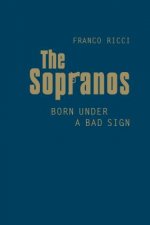
Sopranos
2205 Kč
Dárkový poukaz: Radost zaručena
- Darujte poukaz v libovolné hodnotě a my se postaráme o zbytek.
- Poukaz se vztahuje na celou naši nabídku.
- Elektronický poukaz vytisknete z e-mailu a můžete ihned darovat.
- Platnost poukazu je 12 měsíců od data vystavení.
Více informací o knize Treacherous Bonds and Laughing Fire: Politics and Religion in Wagner's Ring
Nákupem získáte 526 bodů
 Anotace knihy
Anotace knihy
Mark Berry explores the political and religious ideas expounded in Wagner's 'Ring' through close attention to the text and drama, the multifarious intellectual influences upon the composer during the work's lengthy gestation and composition, and the wealth of Wagner source material. Many of his writings are explicitly political in their concerns, for Wagner was emphatically not a revolutionary solely for the sake of art. Yet it would be misleading to see even the most 'political' tracts as somehow divorced from the aesthetic realm; Wagner's radical challenge to liberal-democratic politics makes no such distinction. This book considers Wagner's treatment of various worlds: nature, politics, economics, and metaphysics, in order to explain just how radical that challenge is. Classical interpretations have tended to opt either for an 'optimistic' view of the 'Ring', centred upon the influence of Young Hegelian thought - in particular the philosophy of Ludwig Feuerbach - and Wagner's concomitant revolutionary politics, or for the 'pessimistic' option, removing the disillusioned Wagner-in-Swiss-exile from the political sphere and stressing the undoubtedly important role of Arthur Schopenhauer. Such an 'either-or' approach seriously misrepresents not only Wagner's compositional method but also his intellectual method. It also sidelines inconvenient aspects of the dramas that fail to 'fit' whichever interpretation is selected. Wagner's tendency is not progressively to recant previous 'errors' in his oeuvre. Radical ideas are not completely replaced by a Schopenhauerian world-view, however loudly the composer might come to trumpet his apparent 'conversion'. Nor is Wagner's truly an Hegelian method, although Hegelian dialectic plays an important role. In fact, Wagner is in many ways not really a systematic thinker at all (which is not to portray him as self-consciously unsystematic in a Nietzschean, let alone 'post-modernist' fashion). His tendency, rather, is agglomerative, with ideas and influences overlapping. Indeed, the claim made sometimes that the 'Ring' does not make sense touches upon an important truth in pointing towards the complexity of process. The claim errs, however, in failing to see Wagner's progression as one of self-criticism rather than incompetence. Questions and tentative solutions are tried and found wanting, leading to yet further attempts to reconcile political commitment, and the pessimistic religion seen in recognition of the nullity of the phenomenal world. 'The Ring', then, affords an extraordinary opportunity to grasp the richness and complexity of nineteenth-century thought and its underlying historical forces.
 Parametry knihy
Parametry knihy
Zařazení knihy Knihy v angličtině The arts Music Music: styles & genres
5255 Kč
- Plný název: Treacherous Bonds and Laughing Fire: Politics and Religion in Wagner's Ring
- Autor: Mark Berry
- Jazyk:
 Angličtina
Angličtina - Vazba: Pevná
- Počet stran: 304
- EAN: 9780754653561
- ISBN: 0754653560
- ID: 04680047
- Nakladatelství: Taylor & Francis Ltd
- Hmotnost: 600 g
- Rozměry: 163 × 241 × 23 mm
- Datum vydání: 28. December 2005
Oblíbené z jiného soudku
-
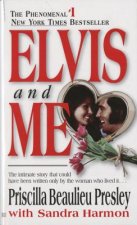
Elvis and Me
218 Kč -

Just Kids
378 Kč -

Complete Preludes, Nocturnes & Waltzes
503 Kč -

The Long Hard Road Out Of Hell
433 Kč -

The Dirt - Mötley Crüe
357 Kč -

Pink Floyd All The Songs
1127 Kč -

Beatles Gear
1284 Kč -

Face the Music
374 Kč -

No One Here Gets Out Alive
250 Kč -
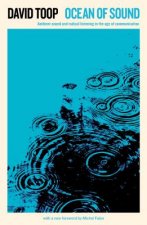
Ocean of Sound
303 Kč -

David Bowie Is
1161 Kč -

Whatever You Say I Am
329 Kč -

Does the Noise in My Head Bother You?
276 Kč -

Lords Of Chaos - 2nd Edition
488 Kč -

Hear It and Sing It!
443 Kč -

Iron Maiden Every Album, Every Song (On Track)
515 Kč -

Bill Evans
513 Kč -

Rachmaninov - Concerto No. 2 in C Minor, Op. 18:
607 Kč -

Study Quran
1012 Kč -
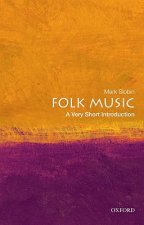
Folk Music: A Very Short Introduction
282 Kč -

Confessions Of A Heretic
593 Kč -

Moonwalk
323 Kč -

Beastie Boys Book
848 Kč -

Metalion: The Slayer Mag Diaries
1016 Kč -

Jazz Piano Book
1076 Kč -
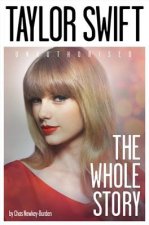
Taylor Swift
268 Kč -

White Line Fever
268 Kč -

A Perfect Union of Contrary Things
414 Kč -

I Am Ozzy
378 Kč -

Standing in the Shadows of Motown
948 Kč -

Angry Blonde
302 Kč -

Suzuki Violinist
494 Kč -
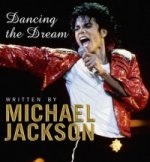
Dancing The Dream
706 Kč -

My Friend Michael
544 Kč -

Paul McCartney
444 Kč -

Pink Floyd: Mind Over Matter
1262 Kč -

Burning Britain
577 Kč -

Tokio Hotel Fever
436 Kč -

Real Book
1122 Kč -

I'm with the Band
356 Kč -
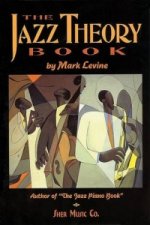
Jazz Theory Book
1419 Kč -

Eric Clapton: The Autobiography
323 Kč -
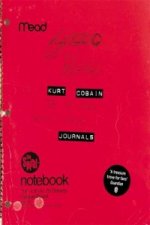
Kurt Cobain
678 Kč -
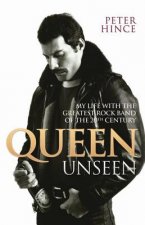
Queen Unseen - My Life with the Greatest Rock Band of the 20th Century: Revised and with Added Material
302 Kč -

It's So Easy (and other lies)
323 Kč -

18 and Life on Skid Row
389 Kč -

Only Death Is Real
812 Kč -
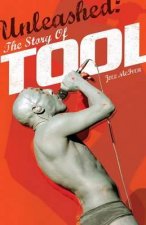
Unleashed: The Story of Tool
674 Kč -

Ariana
223 Kč
Osobní odběr Praha, Brno a 12903 dalších
Copyright ©2008-24 nejlevnejsi-knihy.cz Všechna práva vyhrazenaSoukromíCookies



 Vrácení do měsíce
Vrácení do měsíce 571 999 099 (8-15.30h)
571 999 099 (8-15.30h)